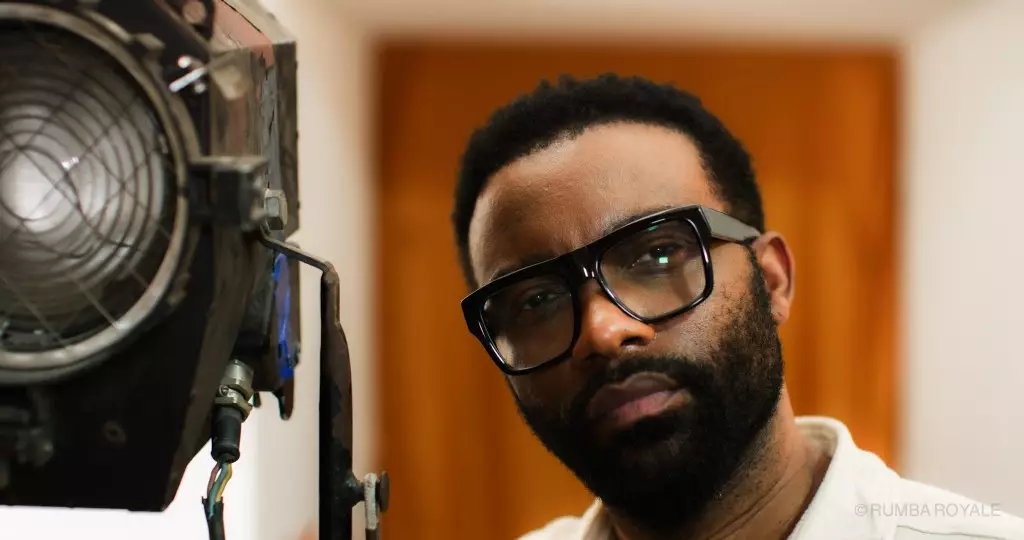The upcoming film “Rumba Royale” is poised to be a groundbreaking release in African cinema, especially for the Democratic Republic of Congo. Initiated by Pathé Touch Afrique, this film is significant not only for its rich storytelling but also for featuring Congolese music icon Fally Ipupa in his acting debut. Known as the “Prince of Rumba,” Ipupa is celebrated for his viral performances that resonate deeply with fans of Congolese rumba—a genre imbued with cultural significance. By involving such a beloved figure, the film is set to bring cultural pride and artistic expression to the forefront of contemporary cinema.
Moreover, Rumba Royale is more than just a film; it symbolizes a renaissance for Congolese storytelling. As globalization has increasingly impacted local narratives, Rumba Royale stands out by connecting its historical backdrop with universal themes of love and struggle, allowing it to resonate beyond its immediate cultural context. The filmmakers, Yohane Dean Lengol and Hamed Mobasser, view this work as a love letter to both their homeland and the African continent as a whole. Their ambition to elevate local cinema onto the global stage is commendable and reflects a broader desire to shift perceptions surrounding African narratives.
A Triumph of Collaboration and Vision
An essential aspect of Rumba Royale is the collaborative effort involved in its production. Joining Ipupa in the cast are talented actors such as Mélanie Bokata and Cécile Djunga, all of whom contribute to a rich tapestry of performance that layers the storyline with emotional depth. The unity of passionate individuals, guided by a clear vision, has forged what promises to be a compelling tale.
Ipupa has publicly expressed confidence in the film’s ability to resonate with audiences not just within the Democratic Republic of Congo but across the African continent and potentially internationally. His enthusiasm highlights the collective effort behind Rumba Royale, showcasing how the convergence of talent, ambition, and cultural storytelling can create something extraordinary. This isn’t merely an attempt at commercial success, but a sincere effort to convey the complexities of Congolese identity, history, and art forms.
Expanding Horizons: Pan-African Ambitions
Pathé Touch Afrique’s strategy for distributing Rumba Royale across French, English, and Portuguese-speaking territories emphasizes its commitment to pan-African unity through cinema. Special screenings planned for Europe and the U.S. illustrate an understanding of the global market—one that appreciates diverse storytelling. By ensuring accessibility in multiple languages, the film is strategically positioned to reach a broader audience, allowing the richness of Congolese culture to transcend borders.
Interestingly, the film represents the largest distribution endeavor for Pathé Touch Afrique since its recent rebranding, showcasing the significance of this release within the company’s trajectory. Under new leadership with Sébastien Onomo, a well-regarded figure in the industry, the film is positioned as a flagship project that encapsulates the company’s vision while simultaneously revitalizing the African film landscape.
A Cultural Renaissance Anchored in Musical Heritage
The integral incorporation of Congolese rumba music in Rumba Royale is not a mere backdrop but serves as a crucial narrative device. Music has long been a vehicle for expressing social, political, and emotional themes, and in the context of this film, it amplifies the cultural authenticity and relevance of the storyline. This rich musical heritage embodies the struggles and aspirations of the Congolese people, offering viewers an auditory journey alongside the visual storytelling.
As Lengol and Mobasser aptly describe their work, Rumba Royale encapsulates not just a cinematic experience, but a celebration of Congolese culture—a medium through which local stories are showcased, aiming for a universal audience. Their assertion not only challenges the existing paradigms surrounding African cinema but also lays the groundwork for future projects that wish to bridge gaps between localized storytelling and global narratives.
Through this film, we are reminded of the power of art as a cultural ambassador, capable of transcending barriers and illuminating diverse experiences and histories. Rumba Royale emerges not only as a project of entertainment but a critical collaborative effort worthy of recognition and admiration in the ever-evolving world of film.
